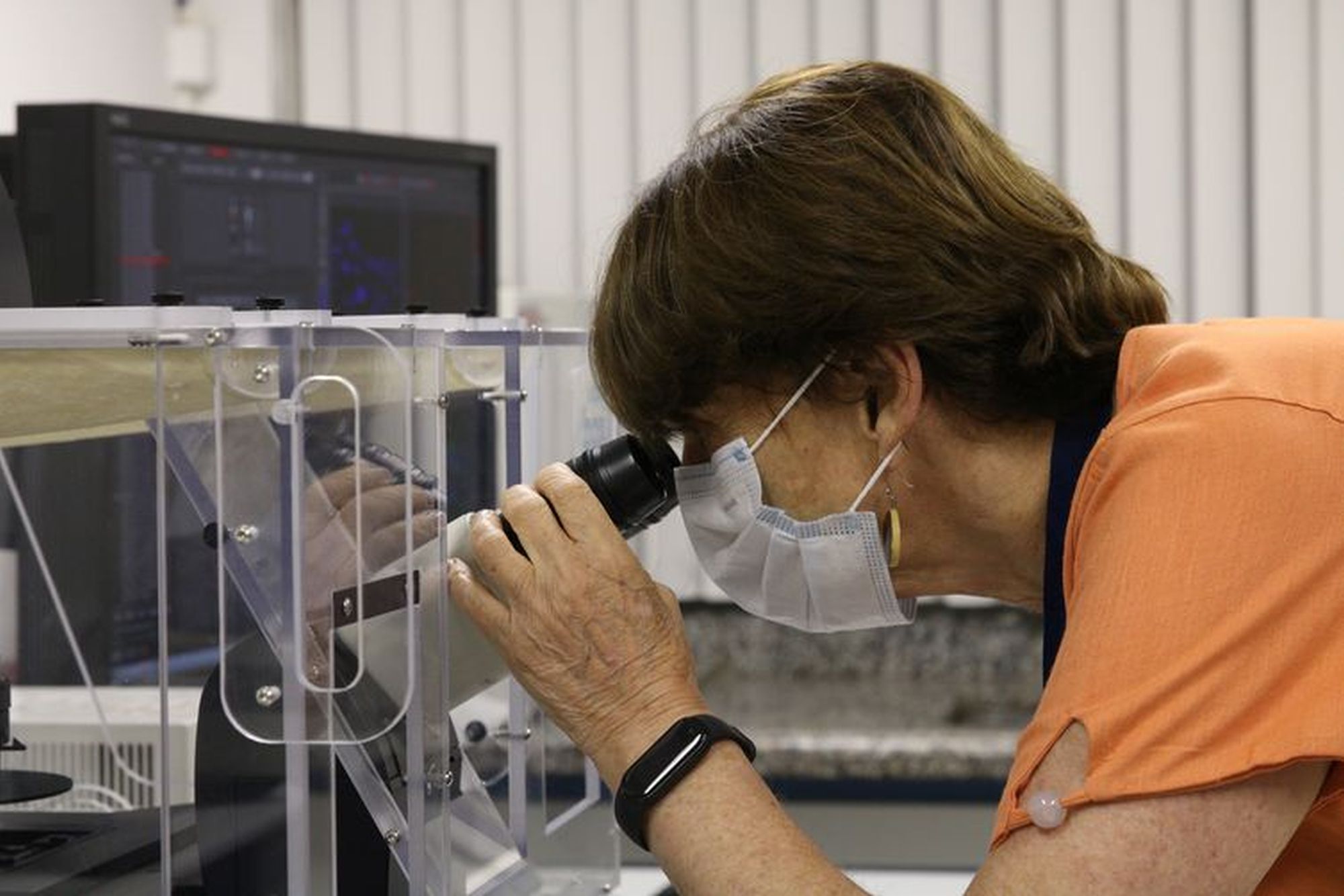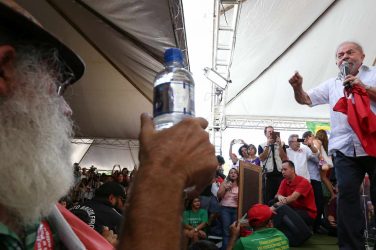Brazilian science and technology have recently been in the news. Linked to the results of October’s contest between Bolsonaro and Lula, the sectors’ future will be highly dependent on the upcoming election’s outcome.
In retrospect, during his tenure as leader, Bolsonaro has not been a friend to the scientific community. Slashing funds to FNDCT (the National Fund for Scientific and Technological Development) in 2021, Brazil’s current president has deliberately channeled financing away from scientific agencies, opting instead to develop infrastructure, agriculture, health and education, reminiscent of Trump’s policies that Bolsonaro has so closely modeled himself on.
In January, the Bolsonaro administration continued its three year anti-science campaign by structuring budget cuts and stifling academic autonomy, cutting US$ 110 million from Brazil’s Scientific and Technology Ministry, and withholding US$ 490 million from FNDCT.
But there may be reason for hope. The scientific community’s backlash to Bolsonaro indicates clear resistance, as the Brazilian Academy of Sciences, the Society of Chemistry and the National Association of Graduate Students have all voiced concerns politically. And with a possible return to PT leadership next year, Lula has formally declared his intent to revitalize Brazilian science, technology and innovation, particularly pledging to universalize digital inclusion.
The history of science and technology in Brazil dates back to the first decades of the 19th century. Though the move of the Portuguese royal family to Rio de Janeiro escaping Napoleon in 1807 more or less initiated pursuits, scientific exploration actually predates these developments by a few decades.
In particular, fauna and floral studies under Portuguese naturalist Ferreira around 1783, and the founding of a Brazilian botanical institute in 1797 in Salvador are examples. Although there were definite moves to establish European-style military, library, botanical and medical/surgery schools from 1808-1810, by and large, scientific initiatives were absent in Brazil until the 1840s, and did not gain any real steam until the 20th century.
1916 witnessed the founding of the Brazilian Academy of Sciences, and scholarship at the University of São Paulo began in 1934. In 1951 both the Conselho Nacional de Desenvolvimento Científico e Technológico (CNPq) and the Coordenação de Aperfeiçoamento Pessoal de Nível Superior (CAPES) were instituted by the federal government, in an attempt to standardize and formalize scientific study through state-driven funding.
After the founding of the FUNTEC fund (for graduate engineering and hard science) by BNDES in the 1960s and the formalization of FINEP (Financing Agency for Studies and Projects) in the National Fund for Scientific and Technological Development in 1969, the industry began to take off in the 1970s.
That decade witnessed the founding of Embrapa (the Brazilian Agricultural Research Company), the initiation of the Proalcool program, the launching of the SONDA II rocket in 1973, the financing of Brazil’s nuclear energy program, and the rise of Petrobras and Embraer. At the forefront were the agendas of economic growth, energy, communications and transportation, as well as the fostering of goals for military, social and international eminence.
With debt and inflation, the 1980s witnessed an unfortunate period of stagnation in Brazilian science. The end of ISI, the rise in oil prices, high interest rates, decentralization and political pork all contributed to the downturn. The Ministry of Science and Technology (MCT) was founded in 1985, but was shut down twice, and by the 1990s, a fundamental reevaluation based on the Asian model of primary and secondary education became necessary.
In the 2000s, Lula took steps to promote the scientific agenda, with the Innovation Law of 2004, and most importantly, the Lei do Bem of 2005, which sought to stimulate R&D and and subsidize professors’ salaries. In 2007, Lula’s initiated Growth Acceleration Program (PAC) set the trend for the Action Plan for Science and Technology for National Development, as well as for enhanced R&D, national scholarships and Olympiads established by the National Research Council (CNPq).
The structure of Brazil’s science and technology matrix is relatively straightforward. The Ministry for Science and Technology (MCT) functions as the central agency, with the CNPq offering scholarships and FINEP providing public funding. While MCT directs the agencies for Space, Amazon, Technology, and Computer research, many non-university institutes carry out R&D and scientific research, based on the SENAI (the National Service for Industrial Apprenticeship Training) S-System for competitiveness, and SEBRAE, which supervises Brazil’s Micro and Small Business Support Service.
The Brazilian Academy of Science (ABC) promotes technological education, with public policy and the Brazilian Society for the Advancement of Science (SBPC) aiming to expand educational and social development. Funding comes from six sources: 1. Government, at the federal, state, and municipal levels, with the aforementioned MCT, CNPq and FINEP, 2. Indirect funding of public and private universities such as UNICAMP, 3. Public companies such as EMBRAPA, 4. Industrial, commercial and private companies with R&D centers, 5. National private and non-for-profit foundations such as the Banco do Brasil Foundation, and 6. International organizations such as Rockefeller and Ford Foundations.
But while there has been a significant impetus for innovation over the past several decades, by and large, Brazil remains hindered in its goals for scientific and technological development. The traditional policy of ISI and protectionism stifled investment over the decades, and Brazil’s inadequate infrastructure contributes to the Custo Brasil, hampering business innovation.
Furthermore, institutes and universities remain difficult to manage. Federal mandates have created bureaucratic red tape, disrupted career paths, and fostered civil service union dominance. Brazil’s size also creates social inequality derived from its limited ability to implement technological innovation, and the dearth of teacher training, computer, and internet resources in primary school also remain fundamental challenges.
The recent efforts to stimulate R&D through tax investment, fund science, and form social organizations to coordinate with private companies represent a move in the right direction, but lack of funding remains the central concern.
Generally, Brazil suffers from a deficit in scientific and technological capacity. Although the past two decades have witnessed a concerted effort, for example with the 2004 Innovation Law and the 2005 Lei do Bem, and the Science Without Borders program of 2011, scientific and technological development has remained limited in terms of R&D and patent output.
The roots are indeed historical. The low quality of education, teaching and innovation have translated into Brazil’s relatively few number of scientists and engineers, contributing to limited productivity, competition, and access to trade.
In all likelihood, the future prosperity of Brazilian science and technology rests with the country’s leaders. With a Lula victory in October, and a resumption of tangible goals for the sectors, much work can and needs to be done.
A joint 2021 report published by Ipea and the Woodrow Wilson Center explicitly highlighted such objectives: namely, expanding research infrastructure, developing long term plans for investment, stimulating international investment, encouraging foreign language proficiency, hiring foreign teachers, expanding scholarship programs abroad, reducing university bureaucracy, using endowments to create alternative sources of revenue, providing tax incentives through donations, reinforcing fiscal stimulus through the Lei do Bem, extending credit lines to BNDES, stimulating venture capital, and generally increasing research and development for Health, Energy, Agriculture, Defense, and Public Safety.
Brazil could also seek to modernize its industrial sector, stimulate private sector investment, scientifically integrate Its military projects, and coordinate projects with the World Bank and IDB. Ultimately, Brazil’s economy, society, and international status are at stake. The next several weeks, months and years will prove to be highly consequential.
Peter Sufrin holds a Master’s Degree in History from Boston University, a Master’s Degree in Diplomacy and International Relations from Seton Hall University, and a Master’s Degree in Portuguese from the University of Massachusetts/Dartmouth. He is an Associate Member of the Inter-American Dialogue in Washington, D.C. and contributes regularly to the Dialogue’s Latin America Advisor, the Brazilian Report, American Diplomacy, The Georgetown Journal of International Affairs, and to Brazzil.












